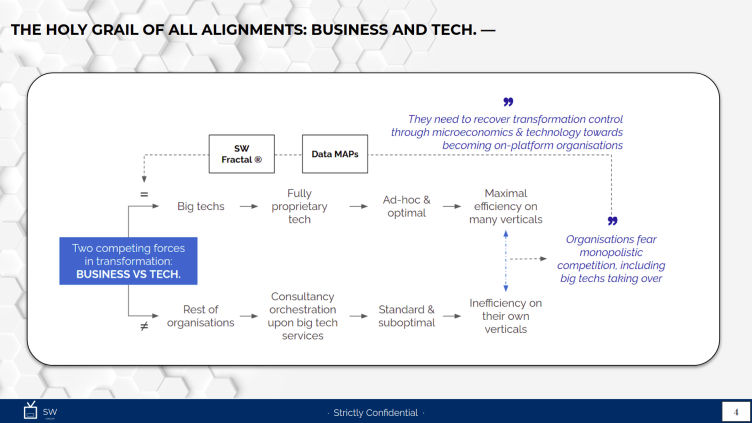Zoom-out, it all makes sense: vol. 5
Big techs are more efficient than you... yet not smarter (#dataMAPs)

Vol. 5
Big techs are more efficient than you... yet not smarter (#dataMAPs)
Fighting the hype by understanding the basics.
There is an equilibrium behind he lack of impact discussed in the previous pill: everyone wants to scale at the price of passing through their own legacies. Organisations are simply the last in this snatch game.

Big techs are more efficient than you... yet not smarter (#dataMAPs)
October, 10th, 2022
Nowadays, everything boils down to synergies. We are living in a digital world whose nature leads to monopolistic pressure. Hence, a tier one priority for organisations is to get their internal platforms right through a range of tech-savvy providers. Only that way can they unlock scalability.
We propose #dataMAPs as a way to unlock organisations' microservices architectures in a way that weighs-off tech and business needs.
Note though that #dataMAPs is an open concept that we are pushing to boost efficiency across industries - i.e. our product is its first instance but not necessarily the only one.
You understand now the whole context around Digitalization. Well done. But there is still a problem: why are we talking about Digitalization to start with? Because no one is seeing the elephant in the room. But that.. let's leave it for the next, again brief, pill.
Thanks for reading!
Made with Mobirise website themes